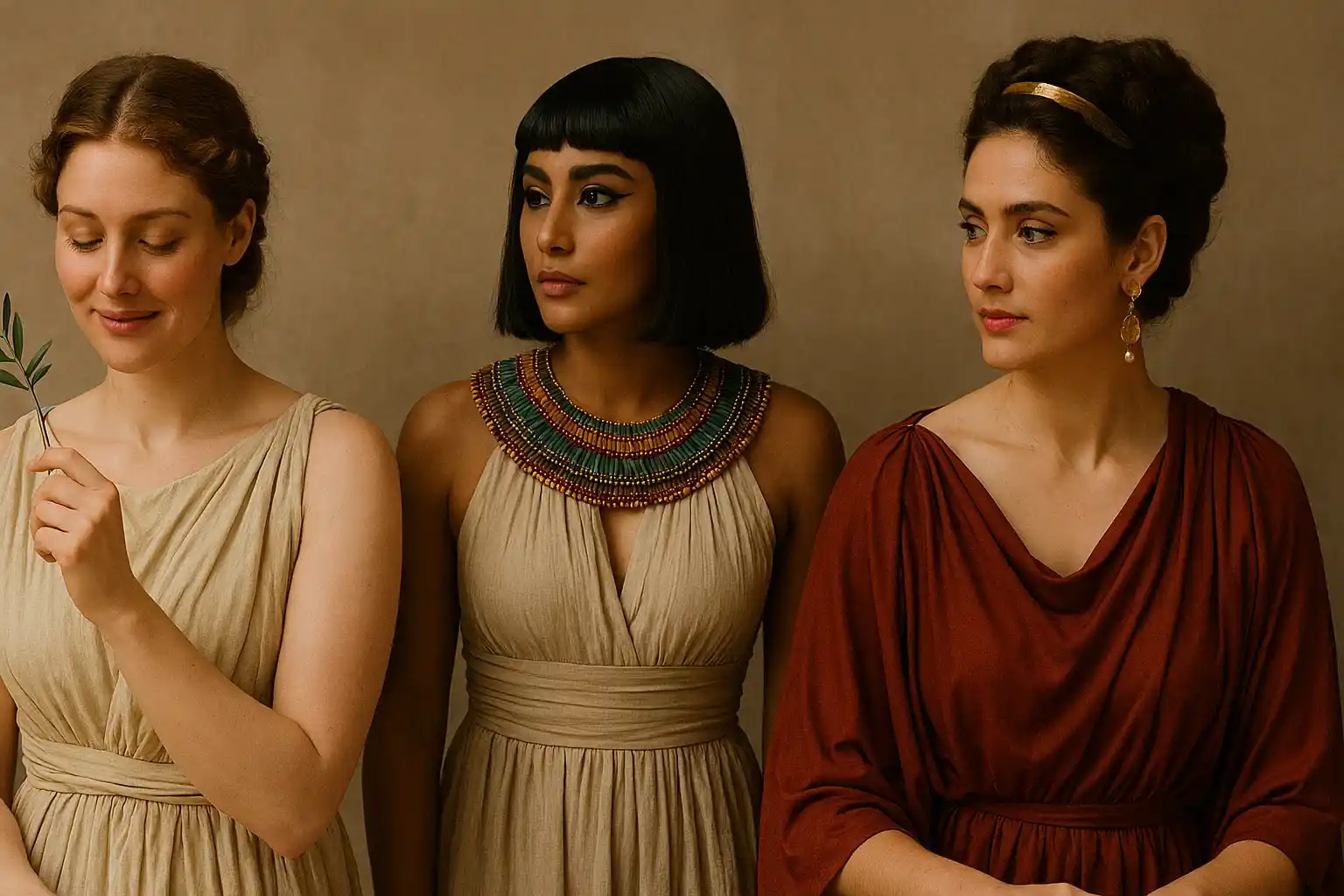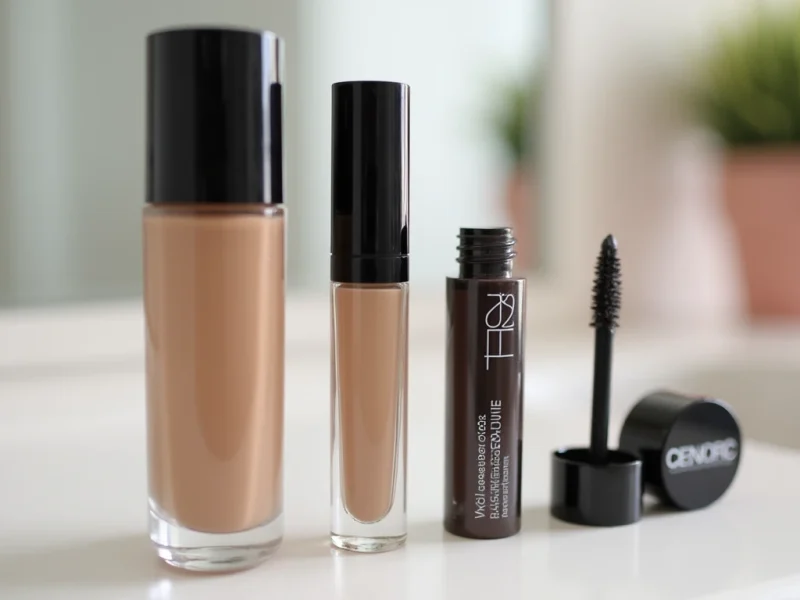Like 1943 Walking Liberty Half Dollar value, the value of true beauty only gains in value over time. These days, we are used to being focused on quick tips from social networks and fleeting trends, forgetting that the ideals of appearance, grooming and aesthetics have been formed over centuries. Ancient civilizations – Egypt, Greece, Rome – not only set standards of beauty, but also turned it into a ritual filled with meaning.
Many secrets of these traditions are still preserved on ancient coins, where goddesses and queens serve both as historical and visual sources of inspiration. Due to modern technology – such as the Coin ID Scanner app – we can literally touch this heritage and learn more about a culture where beauty and symbolism were one and the same.
Ancient Egypt: Beauty as Protection and Power
For the Egyptians, beauty was intertwined with protection, spirituality, and power. Their beauty routines were used for survival and considered as a means of connection with the divine. Below you may find some of the iconic beauty rituals they practiced:
| Beauty element | Description | Cultural significance |
| Kohl for protection | A dark eye paint made from soot and minerals. | Believed to protect against the evil eye and harsh sunlight. It was also seen as a spiritual shield against negative energies. |
| Malachite eye paint | Bright green mineral used as eye shadow. | Associated with fertility and prosperity; used for both aesthetic and protective purposes. |
| Perfumed oils for skin | Oils made from jasmine, frankincense, and myrrh. | Hydrated the skin and provided a spiritual connection to the divine. These oils protect powers for both body and soul. |
| Beauty for the afterlife | Use of oils and makeup in burial rituals. | Ensured that beauty and protection were maintained into the afterlife, signifying respect and continuity. |
How You Can Recreate Timeless Egyptian Beauty
- Use natural oils: The Egyptians swore by the benefits of natural oils, e.g., jojoba and argan to keep skin glowing and protected. You can also apply these oils in your daily skincare routine for healthy, glowing skin.
- Bold eyeliner: To channel the iconic Egyptian look, use bold eyeliner to define your eyes. You can even use modern-day kohl pencils, which echo the ancient Egyptian makeup tradition while being more convenient to apply.
- Scented rituals: Try incorporating a scented oil or perfume into your beauty routine. Like the Egyptians, you can find oils that are both nourishing and aromatic, bringing a sense of protection and luxury to your day.
Interesting fact: Did you know that some ancient coins featured images of gods and goddesses linked to beauty and protection? These coins weren’t just currency – they were symbolic representations of divine beauty ideals. And due to using Coin ID Scanner you can identify the historical and aesthetic significance of these ancient coins, connecting you with the beauty traditions that shaped a civilization.

Ancient Greece: Beauty in Balance and Nature
In Ancient Greece, beauty was not about flashiness or colorful makeup – it lived in simplicity, harmony and naturalness. The Greeks deified natural symmetry and believed that true appeal was a reflection of balance. Their ideal was not a doll’s appearance, but pure skin, a soft glint in the eyes, proportional features and calmness in facial expression. They valued not flashiness, but refined natural beauty.
The secrets of ancient Greek beauty? They were right at your fingertips. Instead of creams – olive oil, giving the skin velvety and glowing. Instead of complex treatments, honey masks to nourish and soften. And just a hint of makeup: a little natural pigment for a fresh, vibrant blush.
What to Note for Modern Women
Today, when fashion dictates endless trends, the lessons of the ancient Greeks sound especially relevant. You should not chase other people’s standards – the ideal can be found in yourself. Be inspired by harmony, not perfection. Emphasize natural beauty, take care of your skin, not mask it. Sometimes just a little bit of sparkle, a sincere smile and confidence is enough to be a real goddess in the modern world.
And to get closer to the ancient Greek perception of beauty, you can try:
- Give yourself an evening of rituals: cleanse your face with warm water and a couple drops of olive oil, then apply a natural honey mask.
- Replace heavy makeup with light makeup: use a bit of cream with foundation, a warm shade of blush and a transparent gloss.
- Put an emphasis on symmetry – for example, when styling your hair or choosing jewelry to emphasize balance in your look.
- Make a habit of daily walks in the fresh air and light exercise to maintain natural energy and clarity in the eyes.
- And most importantly, look at yourself not through the filter of other people’s expectations, but with love and respect, as a work of art.
Beauty is not a mask, but a state of mind, and the Greeks knew this better than anyone else.
The Roman Empire: Beauty as Power and Luxury
If the Greeks exalted naturalness, the Romans saw beauty as a tool of influence. For them, self-care was more than just a habit – it was a language of status, confidence, and power. Roman women turned daily routine into a theatrical performance, and their appearance – a living proof of high position in society.
Roman women organized entire beauty rituals: elaborate hairstyles with jewelry, wigs, fragrances with notes of the East, thickly lined eyes and scarlet lips – everything was designed to admire and emphasize the greatness. Every touch mattered: luxury was in every curl, in every breath.
Interesting fact: In ancient Rome, there was a special profession – ornatrix – a personal stylist slave who was responsible for the hair, makeup and fragrance of her mistress. The most powerful women kept several such assistants, because beauty required time and skill comparable to art.
Tips for Inspiration
Want to experience the luxury of Rome? Try a weekend beauty ritual: light a scented candle with notes of myrrh or laurel and start your grooming routine. Let it be more than just care, but your way of making yourself known to the world with the glamor and grace worthy of a Roman patrician.
First of all, take a warm shower, preferably with natural soap with olive or laurel oil. Imagine washing away the fatigue, worries and noise of modernity. After showering, don’t wipe yourself dry: apply warm oil (e.g. almond or olive oil) with a few drops of lavender or sandalwood essential oil to slightly damp skin. Massage your skin in circular motions – this not only nourishes it, but also improves your mood.
Then, try putting your hair in a bun with braids or soft waves, weave in a ribbon or pin a barrette with golden elements. In Rome, hairstyles were an art form – and yours can be an accent to the look.
At the end, apply red lipstick or berry tinted tint. It’s a bold touch, a symbol of confidence and femininity. Finish the look with a light touch of highlighter on your cheekbones and a drop of fragrance on your wrist. A day like this isn’t just about going out, it’s a little trip through time. Let every detail remind you that you are a goddess, and luxury begins with the way you treat yourself.

In the Mirror of Time
Beauty is not just about looks. It is a history, a ritual, the energy of centuries, reflected in every feature and movement. Listen to the ancient echo – and perhaps you will see in the mirror not just yourself, but the embodiment of an entire era.

